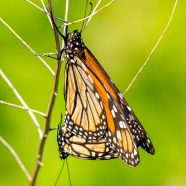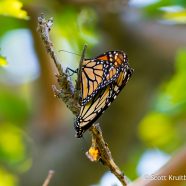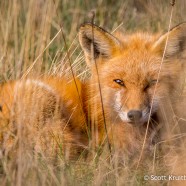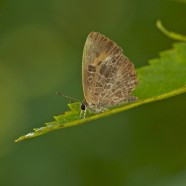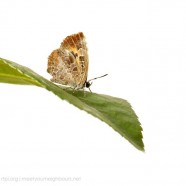Monarchs Mating
Here are a couple more mating Monarch pairs photographed in the last week – the continuation of the cycle of life for a species that so needs it! What are you doing to help the emblematic butterfly rebound?
Read MoreMated Monarchs
This was a memorable moment from last weekend – a mated pair of Monarch butterflies high up on a tree branch. Here’s to them having successful eggs, caterpillars and a healthy next generation. We need every butterfly we can get!
Read MoreRed Fox (Vulpes vulpes)
This Red Fox (Vulpes vulpes) is a “vixen” (female), and the only reason I know that is because she is a dear old friend. The Red Fox pair who breed on the Stratford Point property are well known to us, and we are well known to them. The male, usually called a “dog”, has a scar on his face and a damaged eye. They are intelligent and inquisitive creatures, and they do learn a little about who is around them frequently and whether or not they are a threat. In this case she was very sleepy and sunning as she snoozed, making her all the more relaxed around me in her drowsy...
Read MoreHarvester Butterfly
Here is a shot of the Harvester (Feniseca tarquinius) butterfly in its natural habitat, the world around it is as green as can be. Get out in that hot air today and dig up some treasures for yourself! Photographed by RTPI Affiliate Sean Graesser in Connecticut while on assignment for the Roger Tory Peterson Institute of Natural History.
Read MoreHarvester (Feniseca tarquinius)
It might not look like an unusual butterfly, but the Harvester (Feniseca tarquinius) is North America’s only carnivorous butterfly. That’s right, flying around in our very own woodlands is a carnivorous butterfly! Its larval stage feeds on aphids usually found on Alder trees instead of a host plant. The adults will eat the honey dew excreted by aphids or tree-hoppers. These butterflies can be very difficult to find, usually only discovered while resting on the ends of leaves during territorial and mating disputes. Photographed by RTPI Affiliate Sean Graesser for the Meet Your...
Read More



